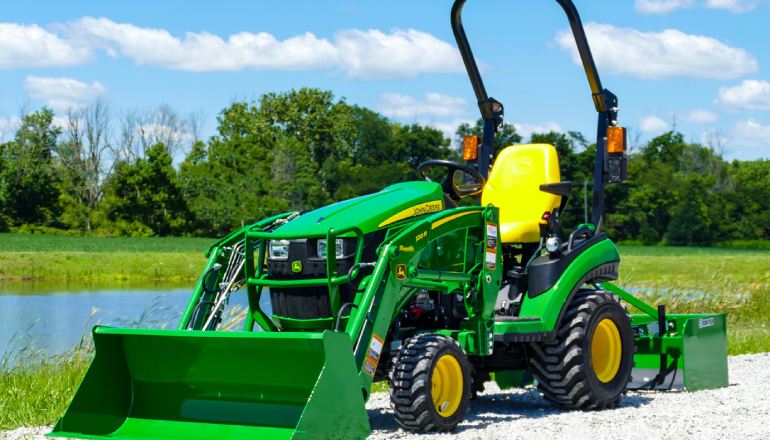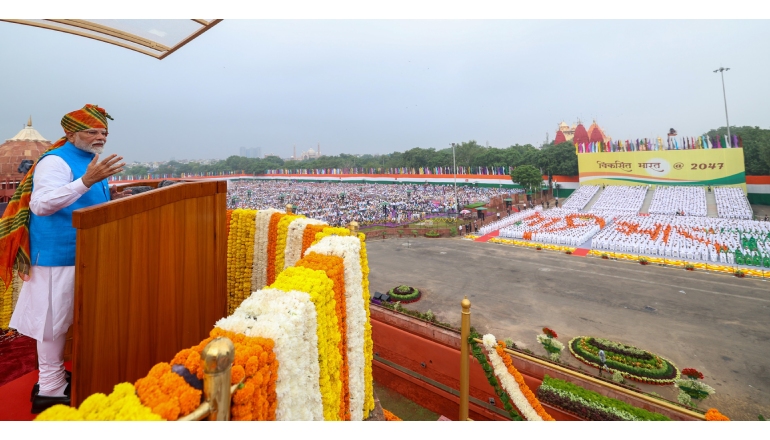This first-of-its-kind electric tractor has been launched by Union Minister for Science and Technology Dr. Jitendra Singh in One Week One lab curtain raiser ceremony held at New Delhi in the presence of Secretary DSIR Dr. N Kalaiselvi and many other dignitaries.
Also, this impactful technology has been licensed to K N bioscience, a Hyderabad based Company famous for its Kushal Tractor brand and many biosciences related development/products to take it to the ground level and mass production; we are hoping for its grand success.
(Central Mechanical Engineering Research Institute)- a constituent laboratory of the Indian Council of Scientific and Industrial Research has developed electric tractors or E-tractors to boost sustainable agriculture in India.
The indigenously designed and developed compact 100% Pure Electric Tractor named CSIR PRIMA ET11 is targeted at the small and marginal farmers of India, CSIR-CMERI said in a statement.
Salient features:
The salient features of the CSIR PRIMA ET11 are as follows:
- Designed and manufactured with indigenous components and technologies
- Dynamics, weight distribution, transmission engagements, lever and pedal position designed in accordance with the needs of agriculture field application
- The lever, switches etc. placed for easy approach to the women. Electronic switches replace mechanical systems for easy operations
Battery:
- State of art Lithium-ion battery with Prismatic cell confirmation
- Has deep discharge capability for farming applications and a life of more than 3,000 cycles
- Can be charged using a conventional home charging socket
- Tractors charged for 7-8 hours can work for 4 hours continuously on the field or more than 6 hours of normal Haulage operation
Transmission:
Designed with a robust and efficient transmission system by using the semi-synchronised type gearing system. The design helps to achieve the desired efficiency at a minimum cost
Features:
- Best in class hydraulic with lifting capacity of 500 kg or more (can be used for field and hauling operations)
- Can tow 1.8-ton capacity trolley with a max speed of 25 kmph
- Robust design to protect from mud and water
- Customized design: The controller and the instrument cluster has been modified to suit the agricultural needs
- Provided with a port called V2L i.e., vehicle to load, which allows the farmers to use the battery for secondary applications like pumping and irrigation when the tractor is not in operation.
Dr Jitendra Singh, Union Minister for Science and Technology, unveiled the tractor in the One Week One lab curtain raiser ceremony held at New Delhi in the presence of Secretary DSIR Dr. N Kalaiselvi and others.
In a move that will provide a boost to the country’s Make in India campaign, CSIR-CMERI mentioned in the statement that the technology has been licensed to Hyderabad-based K N Bioscience—a company famous for its Kushal Tractor brand for mass production of the e-tractors.
It is expected that this tractor CSIR PRIMA ET11 will create a breakthrough in sustainable agriculture while meeting the demands of small and marginal farmers in India. And thereby this development will trigger to lead India in the global tractor industry with revolutionary vision of Make for the World, it said in the statement.
Mainstay:
Agriculture primary source of livelihood for nearly 55% of Indian population, feeds *1.3 billion people and contributes significantly to the country’s GDP.
CSIR CMERI started its first indigenously developed SWARAJ Tractor in 1965, followed by 35hp Sonalika tractor in 2000 and then Small diesel tractor of 12hp Krishi Shakti in 2009 for small and marginal farmers.
However, most of the commercial equipment consists of high-power machines, which are only feasible to large farming areas and pose a challenge for Indian marginal farmers—who comprise more than 80% of the farmer community and have around 2 hectare of farming land or less.
E-tractors and India’s commitment to net zero:
According to an estimate, tractors consume about 7.4% of our country’s annual diesel usage and account for 60% of total agricultural fuel usage. Also, their PM2.5 and NOx emissions are likely to increase 4-5 times the current level in next two decades.
The e-tractors are a drive in the right direction considering India’s commitment to achieve Net Zero by 2070, and its COP 26 Glassgow commitment to reduce the total projected carbon emissions by one billion tones by the year 2030.









